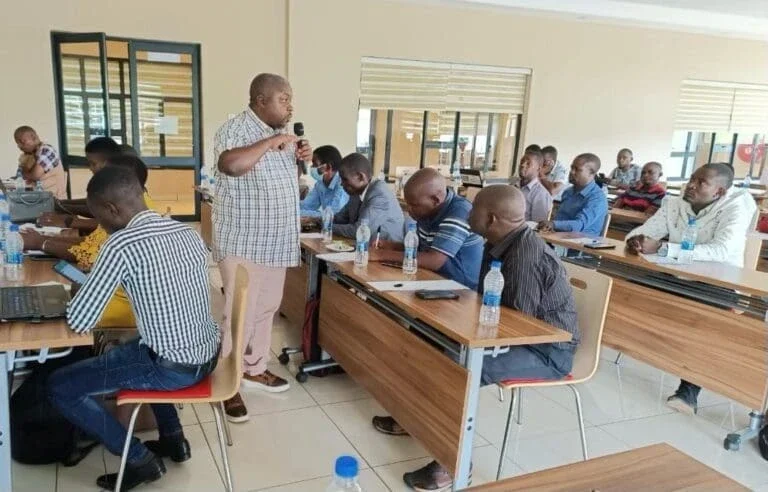Today was one of the best days of my mission. I held a one-day training with 18 local community-based organizations — the real foot soldiers — around community feedback mechanisms.
These responders are the real deal. Collectively, they are a vibrant group that has largely been left out of national coordination efforts.
We spent the day reviewing the why and how of effective risk communication.
We discussed the advantages when experts listen dynamically and address people’s needs. Then communities trust the advice they receive, it is relevant to their concerns, and they understand and adopt protective behaviors.
We discussed the importance of identifying community influencers and trusted voices, and collaborating closely with them, and transparently explaining where uncertainty still exists in a crisis situation. We talked about the importance of monitoring mass and social media as well as healthcare worker feedback.
The feedback by text and email was quick and satisfying: “That was a powerful session…everybody enjoyed and appreciated…people couldn’t believe that you just volunteered to hold the session for free…that was great, chief.”
Benjamin Msowoya, National Safeguarding Manager for Partners in Health based in Neno District in southern Malawi, said he appreciated Collective Service for its focus on synchronization between partners. “Enhanced coordination in health emergencies is very, very, very important,” he said. “We never have enough resources. If we waste, or there is duplication, people will suffer.”
Kennedy Mwalwanda, Program Director at the Initiative for Community Development Services based in Blantayre, stressed the importance of community feedback as a key Collective Service role.
“Without it, we might be initiating responses that aren’t resonating well on the ground,” he said. “Maybe we bring people food when what they really need most is psychosocial response. Even though we know this, we don’t always have capacity during an emergency. So it was critical to attend national meetings where community responses were shared.”
Planning for the future also requires deep community engagement.
We partners realize the government needs to think of permanent relocations in these areas prone to storms and flooding. Relocating is, in fact, key.
But it is the hardest step to accomplish, and I don’t see it happening in the next 12 to 24 months.
Many residents in this area don’t acknowledge climate change and the impact of the Mozambique Channel. They say, “We need to go and do some ceremonies in the affected districts so that our ancestors will not repeat the same thing next year.” Belief structures are strong in many of these communities.
Having completed seven assessments in prioritized districts, I can see that most of the issues stem from a need for greater coordination–both at the district level and within the camps for those displaced.

The community organizations are doing amazing work in challenging circumstances. We want to both elevate their voices and provide them with additional training and tools.
Community engagement is a long-term investment.
We will need to support those working directly with the recovering populace in the months to come. We have to continue to tweak our community feedback system, making it ever more robust.
And we need to continue to partner with the government, encouraging its leaders to make emergency response a priority, implement early warning systems, and mandate improved construction of housing and medical clinics.
My two-week mission is ending. But in many ways, I feel it has just begun. I will continue my connections in Malawi as it both recovers, and prepares for what is ahead.